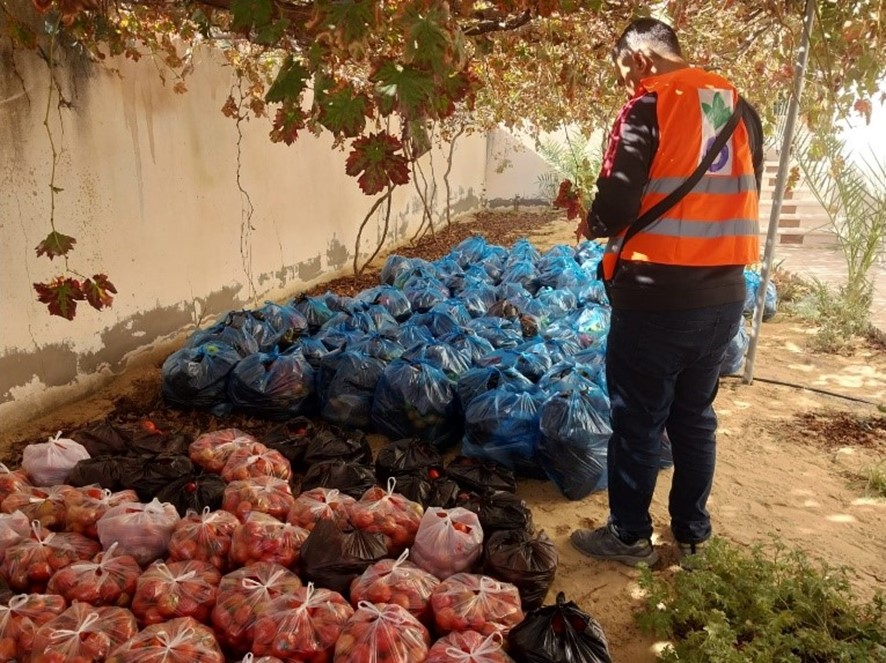London, 21 December 2023 – Action Against Hunger is gravely concerned by the declaration made by a UN-led report, released today, classifying hunger levels in areas of northern Gaza and for thousands of internally displaced people in the south as Level 5, or “Catastrophic,” signifying a very high risk of famine.
In Gaza, 2.3 million people, half of whom are children, are facing an escalated and potentially fatal risk of hunger. The declaration comes from the Integrated Phase Classification (IPC), a food security framework used by the United Nations, food security and nutrition experts, and NGOs, including Action Against Hunger.
Today’s declaration must be a turning point, as there have only been four declarations of famine in recent decades: South Sudan (2017); Somalia (2011); North Korea (1995) and Ethiopia (1984). In Gaza, more than 90 per cent of the population is in crisis phase (3) or worse.
In fact, more than 1.3 million people are in the emergency or catastrophe phase (4 and 5 respectively), while at least one in four households is facing acute catastrophic food insecurity conditions. This means that the lack of food is so extreme that they may suffer from starvation, alarmingly high rates of acute malnutrition among the youngest children and high mortality rates.
Virtually every household in Gaza skips meals every day. Four out of five households in the north, and half of those displaced in the south, go days without eating a single thing. This situation could be reversed immediately with increased humanitarian access.
“The combination of incessant shelling, shortages of food, water, fuel, and the inability of humanitarian agencies to fully operate in Gaza has caused this desperate situation. The UN and humanitarian organisations have been warning for weeks about the need to remove barriers to aid entering Gaza to avoid this reality,” says Chiara Saccardi, Regional Head of Action Against Hunger in the Middle East.
“Everything we are doing is insufficient to meet the needs of two million people. It is difficult to find flour and rice, and people have to wait hours to access latrines and wash themselves. We are experiencing an emergency like I have never seen before,” adds Noelia Monge, Head of Emergencies for Action Against Hunger, who recently returned from the region.
“Our organisation can continue to operate in Gaza because we have been working there for years, ” says Monge. “We have mapped where we can get supplies and we can mobilise local staff. But if trucks can’t get in and there is no fuel, food and water distribution will become virtually impossible.”
Right now, safe humanitarian access to people in need is more critical than ever, but since the short seven-day pause in fighting ended on 1 December, the escalation of attacks, particularly in southern Gaza, has forced most humanitarian organisations to reduce their operations to an insignificant level compared to the scale of needs.
For the past two months, Action Against Hunger has been working in dangerous conditions to provide water, sanitation, and food assistance, but security and access have been severely restricted. Not enough aid is reaching Gaza, there are no supplies in the local market, and we can no longer reach areas in the north due to fighting and lack of transportation. It is a desperate situation.
In addition to the lack of food and water, basic supplies such as nappies, wipes, and soap are also extremely limited. “Mothers are caring for their children with diarrhoea, sometimes with blood, but have no water, no wipes, and no nappies. People are angry, depressed, and desperate because of the situation they live in. They are very afraid,” says Saccardi.
The health system has collapsed, and attacks on hospitals have left much of Gaza’s population without access to any treatment. There are no basic medicines left. Cases of Hepatitis A have been reported, and diarrhoea and lice are common among the population. In overcrowded spaces with no water or sanitation facilities, this is just the beginning of a health crisis on the brink of explosion.
Action Against Hunger is once again calling for a permanent ceasefire, as a matter of the utmost urgency, if the international community is to prevent people from dying of hunger and disease. Children, the sick, and the elderly are most at risk. Action Against Hunger acknowledges the UN General Assembly’s non-binding resolution urging a humanitarian ceasefire as an important but incremental move towards potentially saving lives amid continuous bombardment and dire hunger.
We must act now. Ending the conflict is a prerequisite for a meaningful humanitarian response in Gaza, as well as for securing humanitarian access and being able to deliver a massive, multi-sectoral response as soon as possible. We are no longer in the warning phase – we have reached the point of catastrophe.


